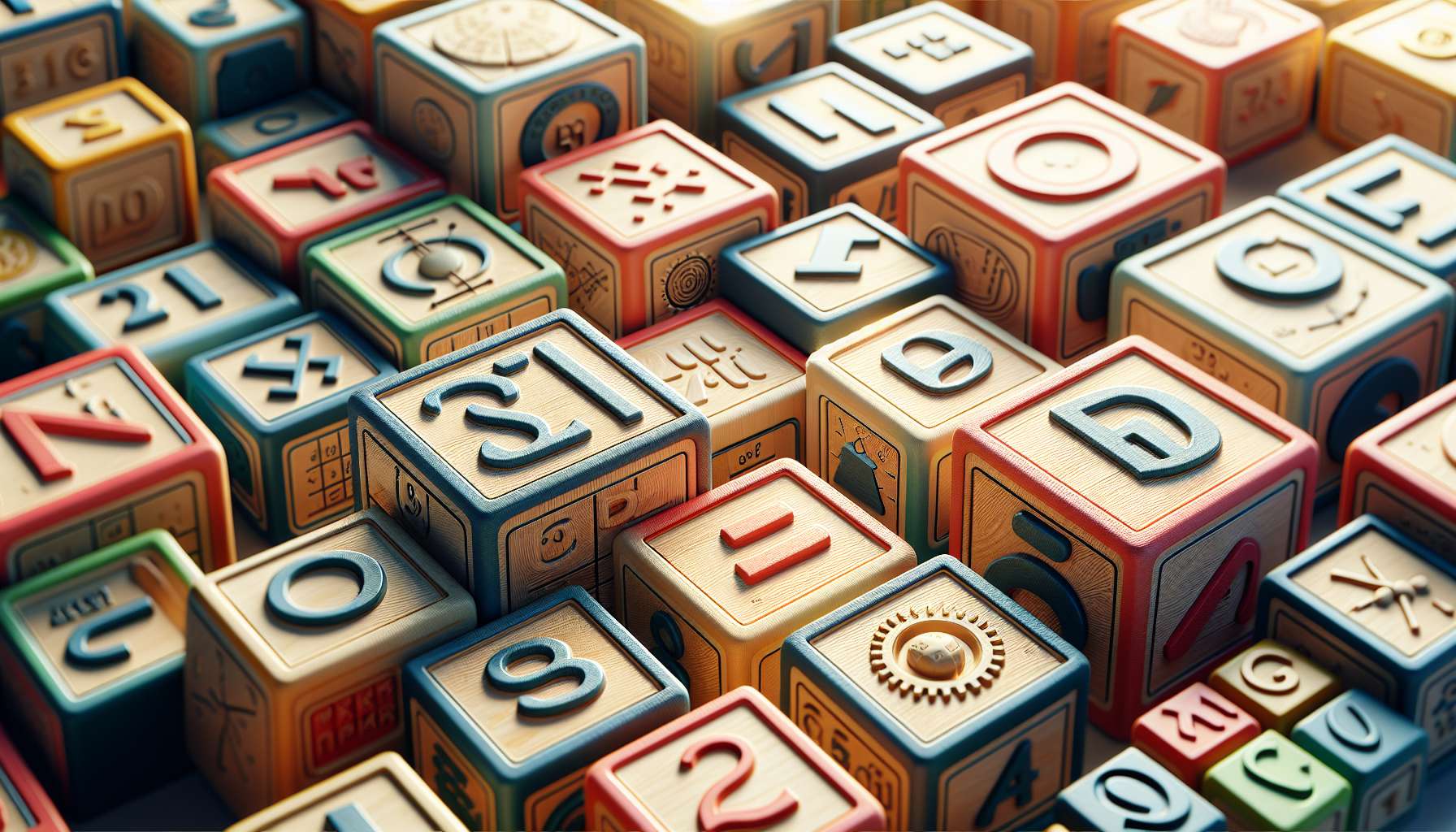Educational Building Blocks: The Foundation of Learning
Education is often likened to building a house – a solid foundation is necessary to support the structure and ensure its stability. In the realm of learning, educational building blocks play a similar role. These fundamental components form the basis of knowledge acquisition and cognitive development, laying the groundwork for a lifetime of learning. In this comprehensive guide, we will delve into the world of educational building blocks, exploring their significance, applications, and impact on education.
The Importance of Educational Building Blocks
At the core of any successful educational system lie the building blocks that are essential for the holistic development of students. These building blocks encompass various skills, concepts, and competencies that are crucial for academic achievement and personal growth. From basic literacy and numeracy skills to critical thinking and problem-solving abilities, educational building blocks serve as the building materials that shape a student’s intellectual capacity and cognitive abilities.
One of the key reasons why educational building blocks are so crucial is their role in fostering a strong educational foundation. Just as a house built on a shaky foundation is prone to collapse, a student who lacks essential building blocks may struggle to grasp more advanced concepts and skills. By providing students with a solid foundation of knowledge and skills, educators can ensure that they are well-equipped to navigate the complexities of the modern world and succeed in academic and professional endeavors.
The Evolution of Educational Building Blocks
Historically, educational building blocks have taken various forms, reflecting the changing needs and priorities of the education system. In the past, traditional subjects such as reading, writing, and arithmetic were considered the primary building blocks of education. However, as society has evolved and new challenges have emerged, the concept of educational building blocks has expanded to encompass a broader range of skills and competencies.
Today, educational building blocks include not only the traditional academic subjects but also essential soft skills such as communication, teamwork, and adaptability. In a rapidly changing world where technology is reshaping the way we work and live, these skills are becoming increasingly important for students to succeed in the 21st century.
The Role of Educational Building Blocks in Early Childhood Education
Early childhood education is a critical period in a child’s development, laying the foundation for future learning and success. Educational building blocks play a crucial role in early childhood education, providing young children with the essential skills and knowledge they need to thrive in school and beyond.
One of the key building blocks in early childhood education is language development. By exposing young children to rich and varied language experiences, educators can help them develop strong communication skills that are vital for academic success. In addition to language development, early childhood education also focuses on building foundational math skills, social-emotional development, and motor skills, preparing children for the challenges of formal schooling.
Building Blocks for Special Education
Special education is a specialized field that focuses on meeting the unique needs of students with disabilities or exceptionalities. In this context, educational building blocks take on added importance, as they provide the scaffolding that supports students with diverse learning needs.
One of the key principles of special education is the use of individualized education plans (IEPs) to tailor instruction to the specific needs of each student. Educational building blocks are used to identify the skills and competencies that are essential for a student’s academic and personal growth, allowing educators to design targeted interventions that address their unique learning challenges.
The Future of Educational Building Blocks
As we look towards the future of education, the role of educational building blocks is likely to continue to evolve in response to changing societal needs and technological advancements. With the increasing emphasis on skills such as creativity, critical thinking, and digital literacy, educational building blocks will need to adapt to meet the demands of the 21st century.
One potential direction for the future of educational building blocks is the integration of technology into the learning process. By leveraging tools such as artificial intelligence, virtual reality, and gamification, educators can create engaging and interactive learning experiences that enhance students’ understanding of key concepts and skills.
Expert Opinions on Educational Building Blocks
According to Dr. Maria Montessori, a pioneer in early childhood education, “Education is not something which the teacher does, but it is a natural process which develops spontaneously in the human being. It is not acquired by listening to words, but by experiences upon the environment.”
Dr. Howard Gardner, a renowned psychologist and educator, has proposed the theory of multiple intelligences, which suggests that there are several different types of intelligence, each of which plays a role in learning. According to Gardner, educational building blocks should be designed to cater to the diverse learning styles and abilities of students.
Common Misconceptions About Educational Building Blocks
One common misconception about educational building blocks is that they are limited to academic subjects such as math and science. In reality, educational building blocks encompass a broad range of skills and competencies, including social-emotional development, creativity, and problem-solving abilities.
Another misconception is that educational building blocks are only relevant in formal educational settings. In fact, building blocks are essential for lifelong learning and personal development, regardless of age or educational background.
Conclusion: Building a Strong Foundation for Learning
As we have seen, educational building blocks are the foundational elements that support learning and development across all stages of education. By focusing on essential skills, concepts, and competencies, educators can ensure that students have the tools they need to succeed in school and beyond.
As we look to the future, the role of educational building blocks will continue to evolve in response to changing societal needs and technological advancements. By embracing new tools and strategies, educators can create engaging and interactive learning experiences that prepare students for the challenges of the 21st century.
Ultimately, educational building blocks are the key to unlocking the full potential of every student, providing them with the knowledge, skills, and confidence they need to thrive in an ever-changing world. By building a strong foundation of learning, we can empower students to achieve their goals and make a positive impact on the world around them.




